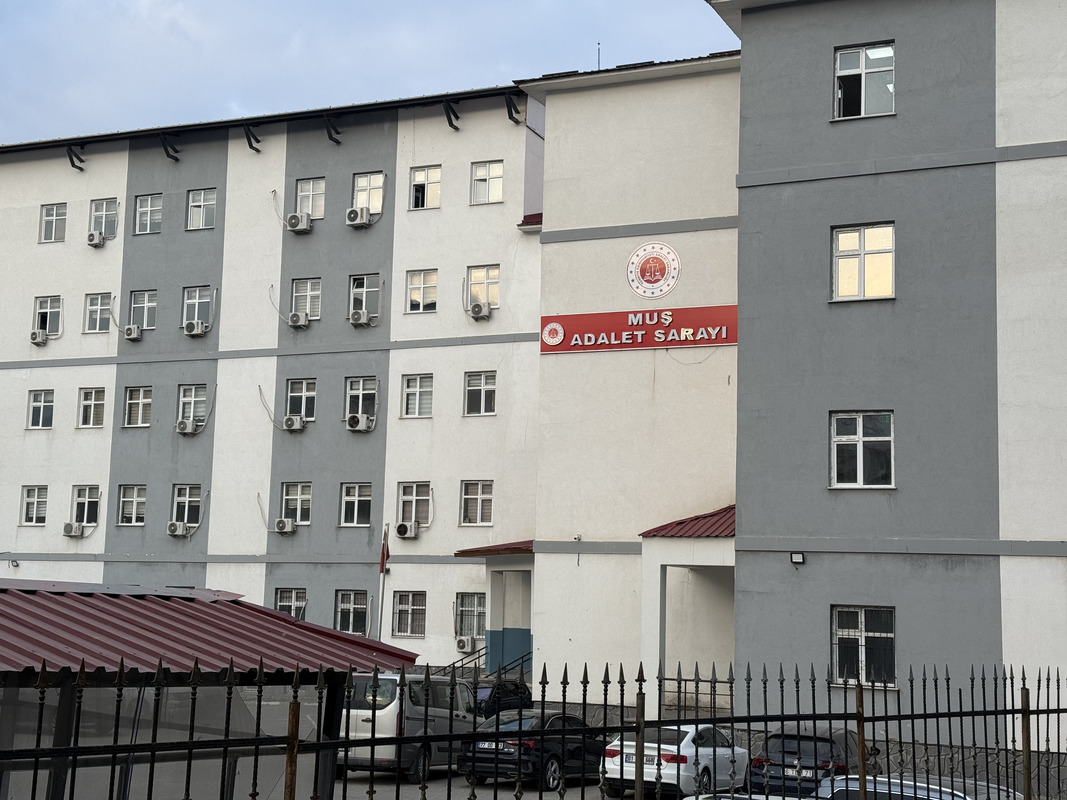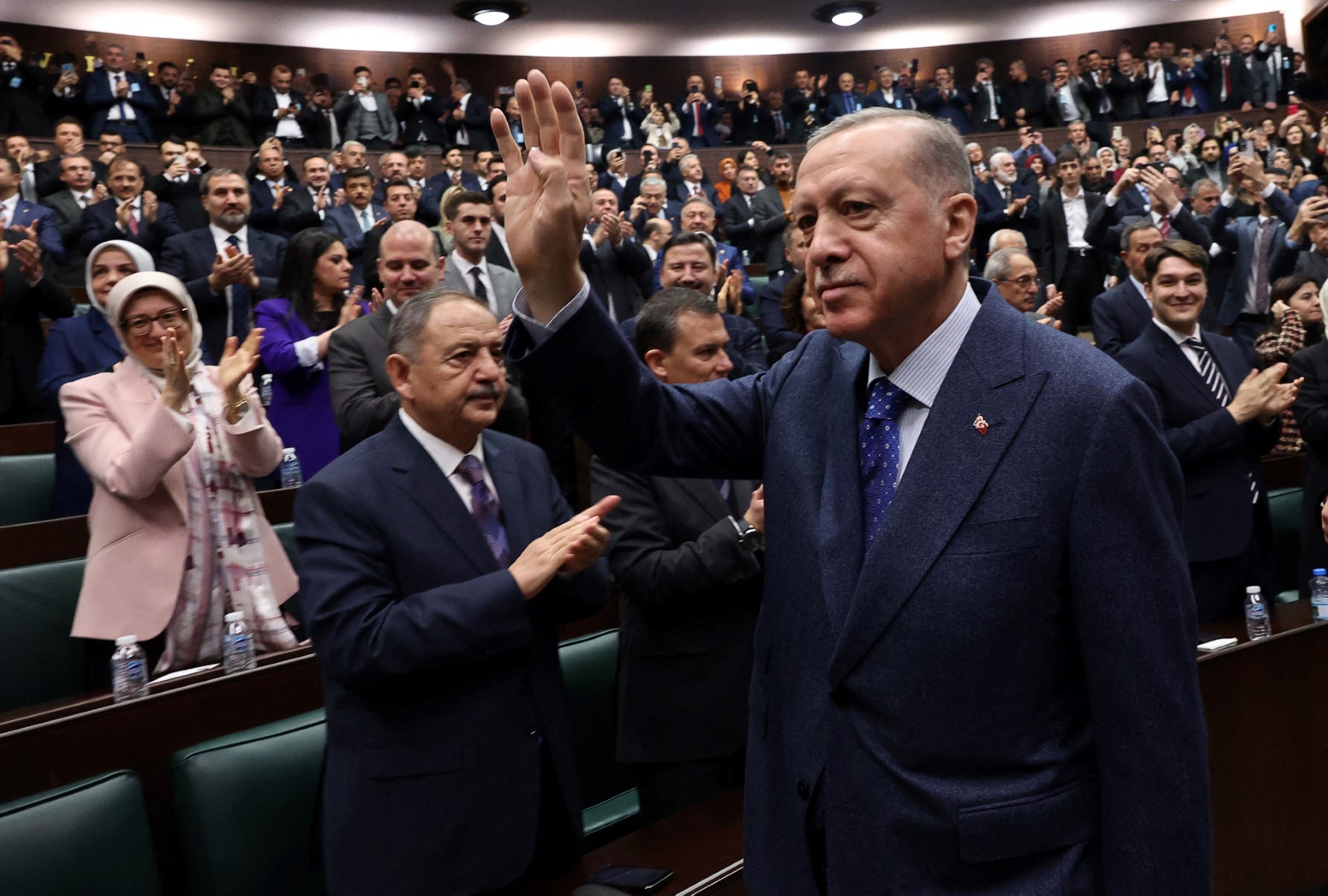Council of Europe Raises Tone Against Turkey
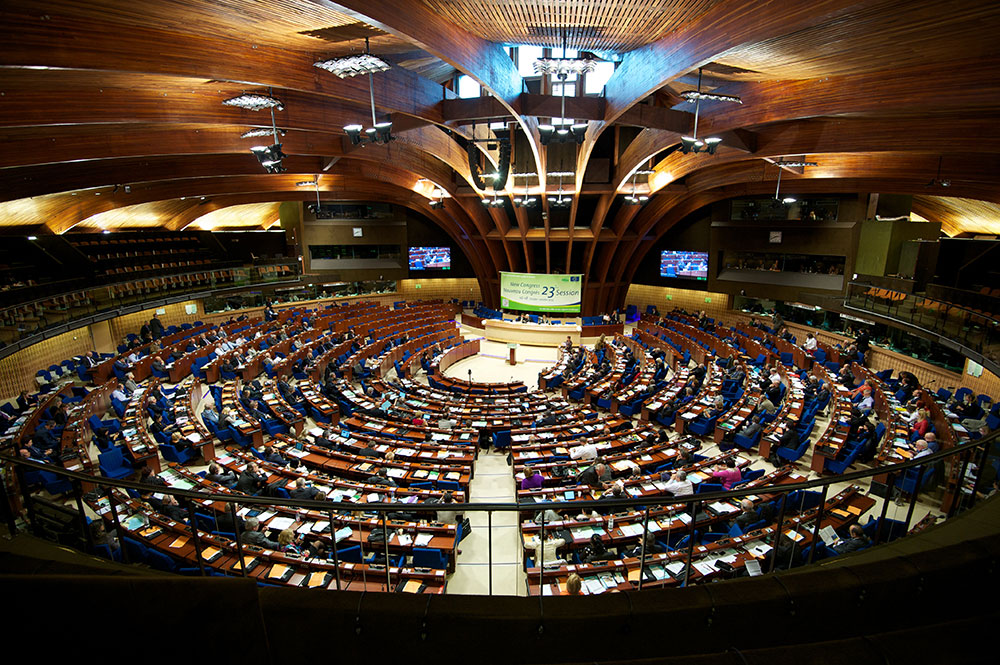
The council of Europe| Picture Credits: Chris den Hond
The Council of Europe expressed criticism about Turkey, particularly regarding democratic backsliding and the erosion of the rule of law, in its session on 30th September.
During its Parliamentary Assembly at the end of September, members of the Council enumerated the main problematic issues in Turkey, including dismissing democratically elected mayors, the lack of judicial independence, and the arrest of opposition figures, journalists, and civil servants. The Turkish MPs from the ruling Justice and Development Party (AKP) also responded to the criticism.
Austrian MP Stefan Schennach, the European Council’s rapporteur of the monitoring committee on Turkey, visited prisoners in Turkey. His conclusions are clear: “Turkey is increasingly losing ground in the rule of law and democracy. It is extremely worrying when the largest opposition party in the country is being cracked down upon by imprisoning elected mayors of Istanbul, Antalya, Ankara, and Adana.”
Organizations defending the free press have voiced strong criticism of the silencing of journalists in the country. Elected co-leaders of the Kurdish DEM party remain in prison. The Parliamentary Assembly of the Council of Europe has repeatedly urged Turkey to fully implement its rulings, particularly in the cases of Osman Kavala and Selahattin Demirtaş, where non-compliance has led to historical infringement proceedings, a rare and serious step within the Council of Europe.
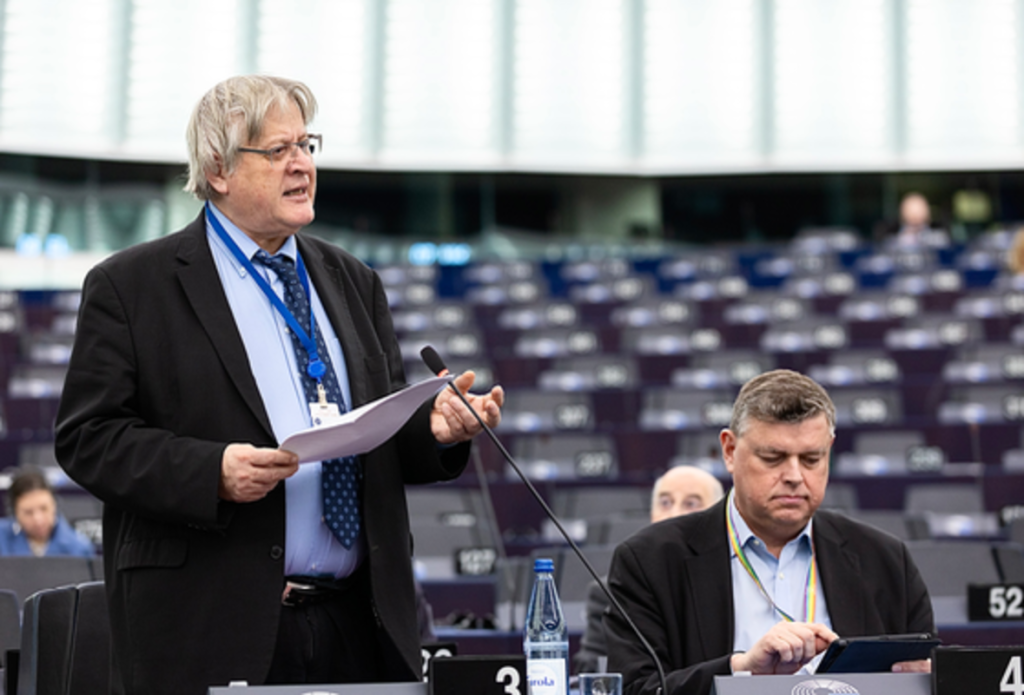
“We have visited Selahattin Demirtas in the high security prison,” Schennach continued, “and our European Human Rights Court has clearly stated that Demirtas and Kavala are political detainees. They are supposed to be free.” Following a highly biased court ruling, Osman Kavala was sentenced to life imprisonment.
“Evidence is manipulated, and there is no presumption of innocence”
“Take the Mayor of Istanbul, Ekrem Imamoglu, for example. There is hardly any possibility of a defence for him, because the defence lawyer was also taken into custody. Evidence is manipulated, and there is no presumption of innocence,” Schennach concluded.
The Council of Europe has issued numerous resolutions concerning Turkey since its membership in 1950, focusing primarily on human rights, democracy, and the rule of law. It has issued recommendations for Turkey to withdraw from the north of Cyprus, which it has been occupying since 1974. The Council of Europe also deplored Turkey’s denunciation of the Istanbul Convention on the protection of women’s rights in 2021. As of late 2024, Turkey remains the country with the highest number of pending cases before the European Court of Human Rights, accounting for 36.7% of the Court’s total caseload.
Nina Kasimati from the Left Group in Greece broke down the number of detainees in Turkish prisons: “According to the Turkish General Directorate of Prisons and Detention Facilities, as of 1 September 2025, Turkish prisons accommodated 419,000 individuals, of whom 300,000 were convicted prisoners and 62,000 were held in pre-trial detention. These figures exceed the official capacity of 295,000 places, reflecting not only the rise in organized crime but also the political instrumentalisation of the penitentiary system by the Turkish state.”
The Council of Europe strongly condemned the Turkish government’s practice of dismissing democratically elected mayors and replacing them with government-appointed trustees. George Loucaides from Cyprus said that “thousands of political prisoners, many of whom belong to the DEM Party (former HDP), remain behind bars. Mayors continue to be removed and persecuted for political reasons. Turkey openly defies binding judgments of the European Court of Human Rights, including the orders to release Osman Kavala, Can Atalay, Selahattin Demirtas, and Figen Yüksekdag.”
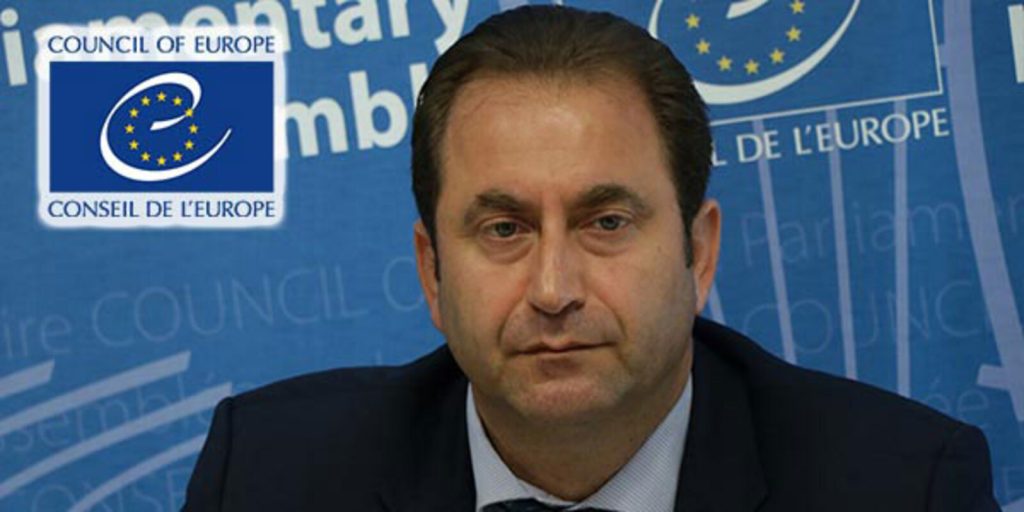
“Abdullah Öcalan remains in near total isolation, in violation of the Nelson Mandela Rules and of the Court’s case law.”
Following Abdullah Öcalan’s call for the dissolution of the Kurdistan Workers’ Party (PKK) and his declared ceasefire, a Parliamentary Solidarity, Brotherhood and Democracy Commission has been created. “However”, Loucaides continued, “Abdullah Öcalan remains in near total isolation, in violation of the Nelson Mandela Rules and of the Court’s case law.” Loucaides finished with a warning: “If Turkey continues to suppress democracy and defy its obligations, we will demand the activation of the complementary joint procedure.”
The activation of the complementary joint procedure from the Council of Europe refers to a specific mechanism within the Council of Europe’s framework for monitoring and addressing serious concerns about a member state’s compliance with its statutory obligations, particularly regarding human rights, democracy, and the rule of law. In extreme cases, it can result in sanctions or even the suspension of membership rights.
Crackdown on Opposition
Béatrice Fresko-Rolfo from Monaco hoped that “the PKK decision to self-dissolve would lead to the release of political spokespersons and activists.” Fearing a climate of self-censorship, she stated that “any truly open and democratic debate becomes impossible in Turkey.” Aysu Bankoglu from the Turkish CHP party, in opposition to the AKP-MHP ruling parties, said: “Our presidential candidate, Ekrem Imamoglu, supported by 15.5 million citizens, now faces sham trials, political bans, and threats of imprisonment. His university diploma has been revoked, his lawyers have been detained, and his legitimacy has been attacked. Meanwhile, 16 mayors from the Republican People’s Party CHP, the main opposition party, remain in prison.”
“This newly established Committee inside the national Turkish assembly is a democratic response to the PKK announcement of its disarmament and dissolution”
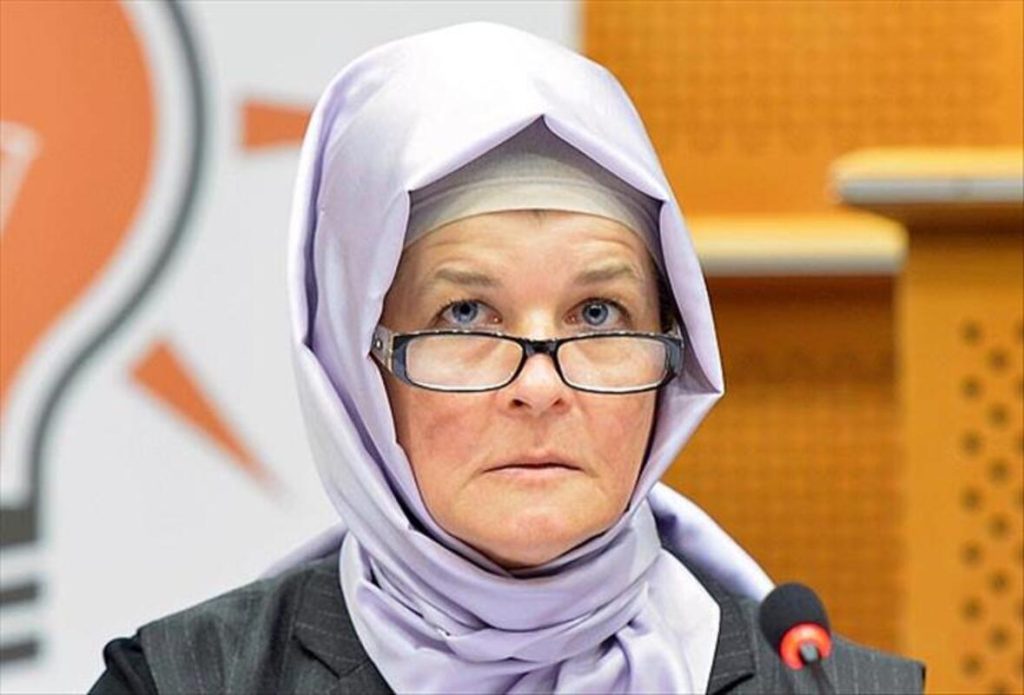
Two members of Turkish parliament from Erdogan’s ruling party, the AKP, responded to the accusations. Aburrahman Babacan stated that the criticisms in the report are “vague and abstract”. For him, Turkey is “deeply committed to fostering inclusive dialogue. A notable example of this commitment is the recently established Committee on National Solidarity, Brotherhood, and Democracy within our Grand National Assembly”. Meryem Göka, another AKP member, said that “this newly established Committee inside the national Turkish assembly is a democratic response to the PKK announcement of its disarmament and dissolution. Our goal is clear,” she said. “A terror-free Turkey leading to a terrorism-free region.”
“The peace process initiated between Turkey and the Kurdish people has so far failed to make tangible progress towards a democratic and peaceful solution”
For the La France Insoumise MP, Emmanuel Fernandes, the sole existence of a parliamentary committee in Turkey is not enough and concrete steps should be undertaken. “The peace process initiated between Turkey and the Kurdish people has so far failed to make tangible progress towards a democratic and peaceful solution,” he said. Focusing on the continuing Turkish aggression in Rojava, he argues that, “Although the bombing of the territories of the Autonomous Administration of Northern and Eastern Syria ceased a few months ago, numerous violations of international law by Turkey have continued, in particular the cutting off and restriction of water supplies.” Fernandes demanded that Turkey apply the Council of Europe’s”Right to Hope” ruling to Öcalan. “This ruling stresses that all detainees must be able to know the date on which their situation will be reassessed”, he said. Fernandes further explained that Abdullah Öcalan is the theorist of the political model of democratic confederalism, which forms the basis for the organisation of society in the autonomous regions of Rojava and allows the co-existence of various ethnic and religious communities, a model that is seen locally “as the best guarantee of stability and peace.”
The Council of Europe is actively monitoring Öcalan’s case and warned of further action if Turkey does not take concrete steps. Öcalan has been in the Imrali prison in Turkey for 27 years. For the Freedom for Öcalan campaigners, who have organized a permanent vigil in front of the Council of Europe since 2013, the release of Öcalan will be a significant step of goodwill from the Turkish authorities and could facilitate the release of other political prisoners, such as Selahattin Demirtas, Kavala, and Imamoglu. According to them, it should also lead to the end of dismissing democratically elected mayors and replacing them with government-appointed trustees. The parliamentary commission from the Turkish National Assembly normally ends its work at the end of December 2025. The pressure on the Ankara authorities to take concrete measures to ensure a peace process is therefore increasing.
Chris Den Hond
Chris Den Hond is a journalist and anthropologist, with special interest in people's struggle, Kurds and Palestinians. He worked for Med TV (later MedyaTV, RojTV and now Sterk TV) from 1997 till 2006 and made reports about Rojava for Le Monde Diplomatique and OrientXXI since 2017. He follows closely the actuality in Turkey, Syria especially in regard to the Kurdish people.

